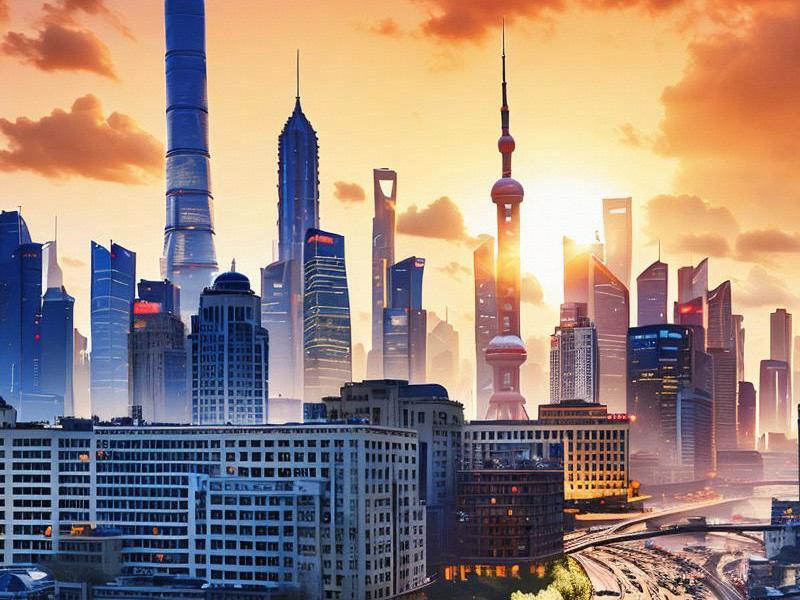
Shanghai, often referred to as the "Pearl of the Orient," is not just a city; it is a living testament to China's remarkable journey from a closed society to an open, globalized powerhouse. Nestled along the banks of the Huangpu River, this dynamic metropolis is a melting pot of cultures, a beacon of economic prosperity, and a hub of technological innovation.
Urban Development: A Vision of the Future
Shanghai's urban landscape is a masterclass in modern city planning. The city's skyline, dominated by iconic structures like the Oriental Pearl Tower, the Shanghai Tower, and the Jin Mao Tower, is a visual representation of its rapid development. These skyscrapers are not just architectural marvels but also symbols of Shanghai's ambition to be a global leader in urban design and smart city technologies.
The Bund, once a symbol of colonial Shanghai, has been transformed into a vibrant waterfront area with luxury hotels, restaurants, and cultural attractions. The Pudong New Area, on the other side of the Huangpu River, is a showcase of modernity, featuring world-class financial districts, high-tech parks, and international exhibition centers.
Shanghai's commitment to sustainability is evident in its green initiatives. The city has set ambitious targets for reducing carbon emissions, promoting renewable energy, and improving public transportation. The Maglev train, the world's fastest commercial train, connects Pudong International Airport to the city center, offering a glimpse into the future of urban mobility.
Economic Evolution: From Trade Hub to Innovation Leader
Shanghai's economic history dates back to the 19th century when it was one of the first treaty ports opened to foreign trade. Today, it is the financial capital of China, playing a pivotal role in the country's economic development. The Shanghai Stock Exchange is one of the largest in the world, attracting investors from across the globe.
新夜上海论坛 The city's free trade zone, established in 2013, has become a testing ground for China's economic reforms. It offers a more business-friendly environment, with streamlined regulations and reduced tariffs, making it an attractive destination for multinational corporations.
Shanghai is also at the forefront of China's push towards innovation-driven growth. The Zhangjiang Hi-Tech Park is home to some of the country's leading research institutions and high-tech companies. The city's talent pool, bolstered by prestigious universities and research facilities, is a key driver of its innovation ecosystem.
Cultural Integration: A Melting Pot of Traditions and Modernity
Shanghai's cultural identity is a unique blend of traditional Chinese elements and Western influences. The city's rich history is reflected in its architecture, cuisine, and arts. The French Concession, with its cobblestone streets and European-style buildings, stands as a reminder of Shanghai's colonial past.
Modern Shanghai, however, is a city that embraces change. The Shanghai Museum, housed in a stunning modern building, showcases a vast collection of Chinese art, from ancient bronzes to contemporary works. The city's theaters and concert halls host a wide range of performances, from traditional Peking opera to cutting-edge contemporary art.
Shanghai's culinary scene is a testament to its cultural diversity. From the spicy flavors of Sichuan cuisine to the delicate pastries of French patisserie, the city offers a culinary journey that reflects its cosmopolitan character.
上海私人外卖工作室联系方式 Global Influence: A Leader in International Affairs
Shanghai's global influence extends beyond its economic and cultural achievements. The city has played a key role in China's foreign policy, serving as a platform for international dialogue and cooperation. The Shanghai Cooperation Organization (SCO), founded in 2001, is a regional security and economic alliance that promotes stability and prosperity in Central Asia.
Shanghai also hosts numerous international events, including the World Expo in 2010, which attracted millions of visitors from around the world. These events not only showcase the city's capabilities but also enhance its reputation as a global hub for culture, commerce, and innovation.
Challenges and Opportunities: Navigating the Future
Despite its many achievements, Shanghai faces several challenges. Rapid urbanization has led to issues such as traffic congestion, housing shortages, and environmental concerns. The city is working to address these challenges through smart city initiatives, sustainable development strategies, and investments in public infrastructure.
The global economic landscape is also changing, with new technologies and shifting trade dynamics reshaping the business environment. Shanghai must continue to innovate and adapt to remain competitive on the world stage.
上海喝茶服务vx One of the biggest opportunities for Shanghai lies in its ability to foster a more inclusive society. By promoting social equity, enhancing education and healthcare, and supporting entrepreneurship, the city can ensure that the benefits of its growth are shared by all its residents.
Future Prospects: A Vision for 2035
Looking ahead, Shanghai's vision for 2035 is one of continued transformation and excellence. The city aims to become a globally influential center for science and technology, a leading financial hub, and a model of sustainable urban development.
Shanghai's government has outlined a comprehensive plan to achieve these goals, focusing on areas such as digital economy, green finance, and international connectivity. The city is also investing in talent development, ensuring that it has the skills and knowledge needed to drive innovation and growth.
As Shanghai continues on its journey, it remains a symbol of China's aspirations and a beacon of hope for a better future. Its story is one of resilience, ambition, and the relentless pursuit of excellence.
